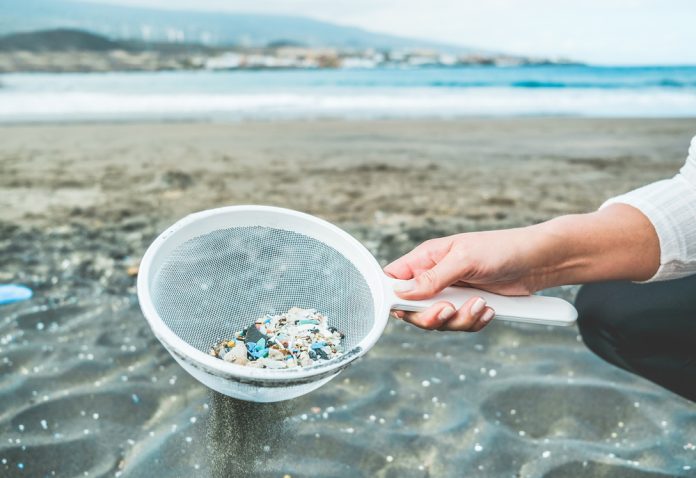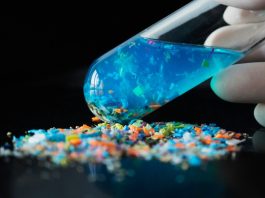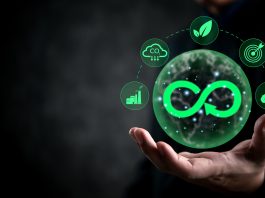In a decisive move to combat one of the planet’s most pervasive pollutants, the European Union has struck an agreement to curb microplastic pollution caused by plastic pellets.
These tiny, often-overlooked particles are a major contributor to environmental degradation, with microplastics polluting oceans, contaminating soil, and infiltrating the food chain.
The new regulation, provisionally agreed upon by the European Parliament and the Council, represents the first EU-wide measure specifically aimed at preventing plastic pellet loss across the entire supply chain.
It signals a powerful step toward a cleaner, healthier future – balancing environmental protection with industrial sustainability.
Jessika Roswall, EU Commissioner for Environment, Water Resilience and a Competitive Circular Economy, explained: “Today’s provisional agreement marks another important step toward a cleaner and healthier planet.
“All ecosystems will benefit from these new handling measures to limit pellet losses. Businesses that depend on these ecosystems will have a better environment to thrive in.
“By maintaining lighter requirements for small companies, we’ve developed smart environmental legislation, positioning the EU as a global leader in reducing pellet losses and a smart regulator that avoids unnecessary burden.”
A strategic move in the fight against microplastic pollution
Microplastic pollution is one of the most pressing environmental challenges of our time. Tiny plastic particles, often invisible to the naked eye, are wreaking havoc on marine ecosystems, contaminating water and soil and even making their way into the human body.
These particles originate from the breakdown of larger plastic items and from plastic pellets – raw materials used in plastic manufacturing – that are frequently lost during transport or industrial handling.
Microplastics are not just an environmental concern – they’re a public health risk. Once released, these particles are virtually impossible to remove from nature.
They accumulate in oceans, rivers, and soil and have been found in seafood, drinking water, and even human blood.
In marine life, ingestion of microplastics can cause injury or death. Species like seabirds, sea turtles, and shellfish are especially vulnerable.
For humans, long-term exposure raises concerns about hormonal disruption, immune response changes, and other health risks, although research is still ongoing.
The new regulation specifically targets these losses, requiring stricter handling practices across the value chain, especially during maritime transport.
The initiative is part of the broader EU Plastics Strategy, the Circular Economy Action Plan, and the Zero Pollution Action Plan, all aimed at reducing microplastic pollution by 30% by 2030.
Reducing plastic pellet losses by up to 74%
Plastic pellet spillage is a widespread but largely preventable form of microplastic pollution.
The new rules are expected to slash pellet losses by as much as 74%, particularly by enforcing best practices such as using non-leaky packaging, installing spill containment tools like trays, and employing high-capacity vacuum cleaners for cleanups.
This measure comes in response to alarming incidents such as recent pellet spills off the northwest coast of Spain and in the North Sea, where massive quantities of pellets ended up polluting marine ecosystems.
By tightening regulations and increasing accountability, the EU aims to not only protect biodiversity but also safeguard sectors such as agriculture, aquaculture, and tourism, which are often the hardest hit by plastic contamination.
Support for small businesses and industry compliance
Understanding the varied capacities of businesses across the plastic supply chain, the Commission has taken steps to ensure the new rules are fair and manageable.
Companies handling over 1,500 tonnes of pellets per year will need third-party certification, while smaller operators will be subject to simpler self-declaration requirements. Additional support will be offered to micro and small enterprises to help them adapt.
Standardisation bodies will develop a harmonised system for monitoring pellet losses, helping businesses understand their environmental impact and improve their practices accordingly.
With a provisional agreement in place, the next step is formal adoption by the European Parliament and the Council. Once ratified, the regulation will take effect 20 days after publication in the EU’s Official Journal.
This bold regulatory move positions the EU as a global leader in the fight against microplastic pollution – setting a precedent for responsible industry practices and stronger environmental stewardship.





